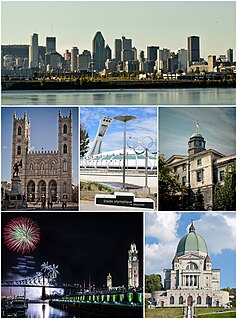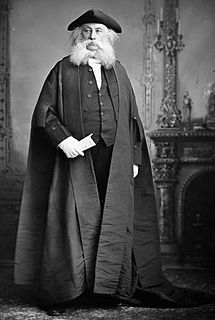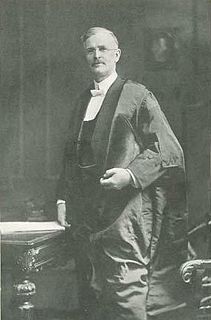| Eustache Prud'homme | |
|---|---|
| Member of the Legislative Council of Quebec for Rigaud | |
| In office 1867–1888 | |
| Succeeded by | Wilfrid Prévost |
| Personal details | |
| Born | June 14, 1818 Montreal, Lower Canada |
| Died | November 5, 1891 (aged 73) Montreal, Quebec |
| Political party | Conservative |
Eustache Prud'homme (June 14, 1818 – November 5, 1891) was a political figure in Canada East.

Canada East was the northeastern portion of the United Province of Canada. Lord Durham's Report investigating the causes of the Upper and Lower Canada Rebellions recommended merging those two colonies. The new colony, known as the Province of Canada was created by the Act of Union 1840 passed by the Parliament of the United Kingdom, having effect in 1841. For administrative purposes, the new Province was subdivided into Canada West and Canada East. The former name of "Lower Canada" came back into official use in 1849, and as of the Canadian Confederation of 1867, it formed the newly created province of Quebec.
He was born in Montreal in 1818. He became a farmer and later was appointed justice of the peace. He also served as captain in the local militia. He was elected to the Legislative Council of the Province of Canada representing Rigaud division in a by-election in 1863 after the death of Robert Unwin Harwood. He served until Canadian Confederation in 1867, when he was appointed to the Legislative Council of Quebec. In 1874, he was mayor of Notre-Dame-de-Grâce. He resigned from his post as legislative councillor in 1888. He died in Montreal in 1891.

Montreal is the most populous municipality in the Canadian province of Quebec and the second-most populous municipality in Canada. Originally called Ville-Marie, or "City of Mary", it is named after Mount Royal, the triple-peaked hill in the heart of the city. The city is centred on the Island of Montreal, which took its name from the same source as the city, and a few much smaller peripheral islands, the largest of which is Île Bizard. It has a distinct four-season continental climate with warm to hot summers and cold, snowy winters.

A justice of the peace (JP) is a judicial officer of a lower or puisne court, elected or appointed by means of a commission to keep the peace. In past centuries the term commissioner of the peace was often used with the same meaning. Depending on the jurisdiction, such justices dispense summary justice or merely deal with local administrative applications in common law jurisdictions. Justices of the peace are appointed or elected from the citizens of the jurisdiction in which they serve, and are usually not required to have any formal legal education in order to qualify for the office. Some jurisdictions have varying forms of training for JPs.
The Legislative Council of the Province of Canada was the upper house for the Province of Canada, which consisted of the former provinces of Lower Canada, then known as Canada East and later the province of Quebec, and Upper Canada, then known as Canada West and later the province of Ontario. It was created by The Union Act of 1840.
















